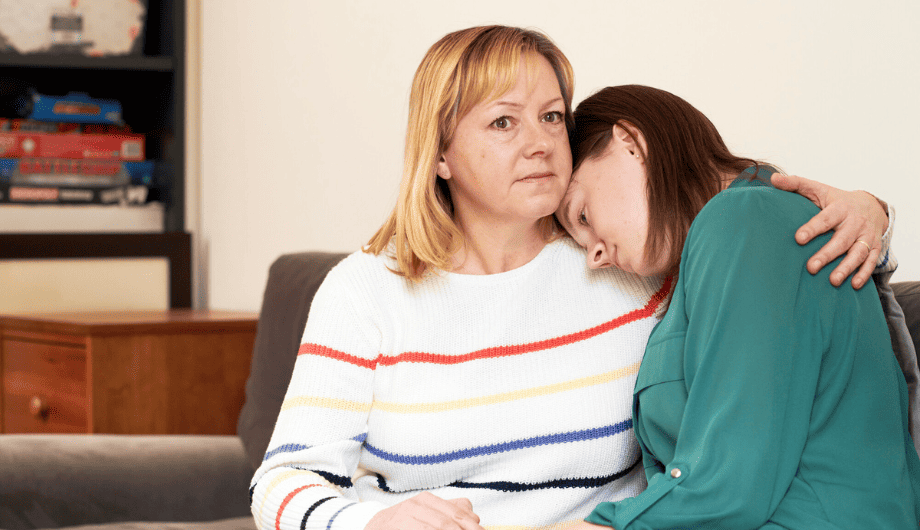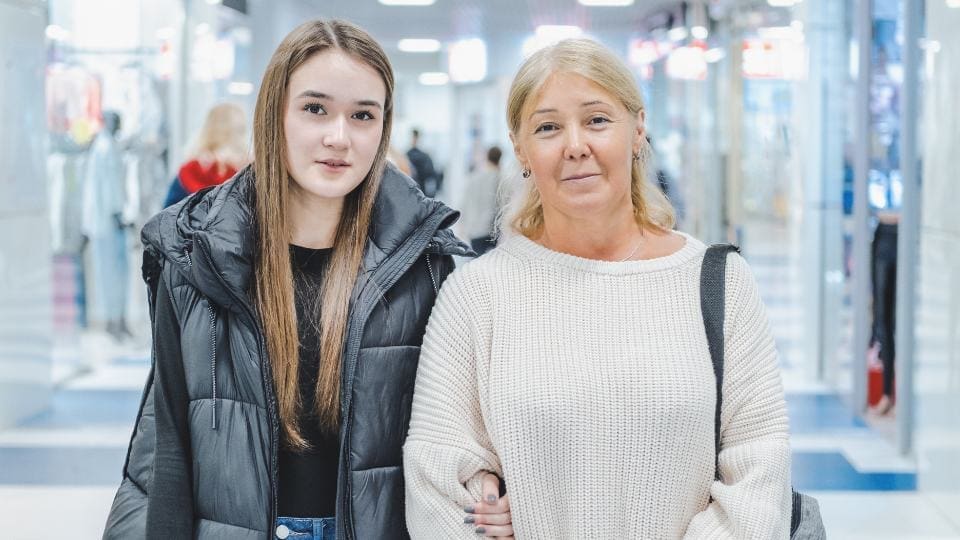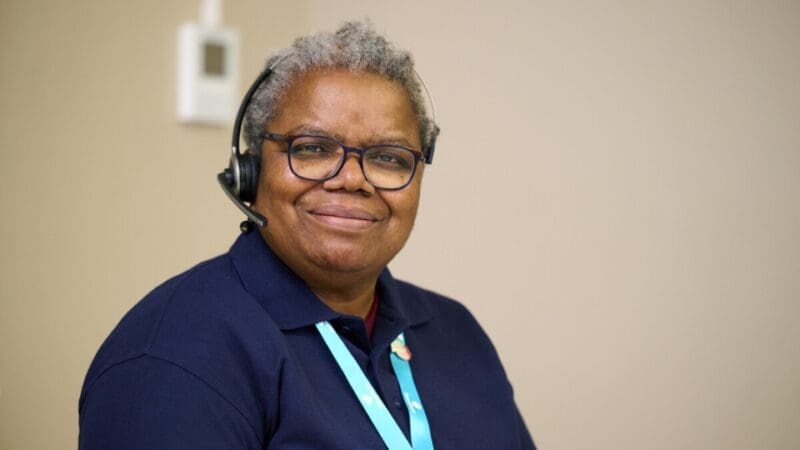
Supporting children and teenagers through grief and bereavement
Children and teenagers experiencing loss may not know how to express their feelings and may need additional understanding and support to do so.

How can a parent best support their children when they have a relative with dementia?
Children who have a relative with dementia may express their feelings and emotions in different ways and you may notice some changes in their behaviour. They may become quiet and withdrawn, act out of character or their schoolwork may be affected, as seeing changes in someone they love may be very unsettling.
If you are a carer for someone with dementia, your child may be worried about you, or it may be affecting family relationships. Caring for someone with dementia can lead to significant anxiety, stress and feelings of loss or grief. Children may feel they have done something wrong if you have less time or emotional energy for them. Helping children understand the impact of caring and providing the opportunity to talk can help them realise it is not their fault.
It is difficult to explain to younger children about the symptoms of dementia. This short animation (below) was developed as a resource for children between the ages of 8 to 12 years old.
Children need to have their feelings validated and not feel judged, so it is important that they know it is okay to express their feelings. Otherwise, they may begin to keep how they are feeling a secret, which can lead to further problems.
Children may express their thoughts and emotions through different methods of communication. Talking and art therapy sessions could be a good approach to help them communicate. By talking to an independent person, like a therapist, the child can take the time to explore and express their thoughts without thinking they are upsetting a family member, and without feeling like they are being pushed to give an answer.
If a child feels they are the only person going through something, like dementia, they may feel isolated and alone. Speak to their teacher or the leader of any sports or activity clubs they attend to see if they can do a fun fundraiser for dementia. This will may help ease any feelings of isolation and other children may then say, “My grandparent, parent, aunt, uncle, or family friend has dementia too”; and these children might then bond when talking about a shared experience of dementia.
Children should be encouraged to take part in a group activity or club that does not cross over with their home life, so they can have fun with other children without feeling guilty. It is important the child does not feel like their childhood is being taken away from them.
If it is still possible, arrange activities with the child and the person with dementia so the child can create memories that they can cherish of their time spent with their loved one. Take pictures of them together and having fun, so the child has something to look at to remember happy times.
However far progressed and time-consuming the person’s dementia is, it is important to take the time out with the child so they know they have your time and love. If possible, arrange for a family member or friend to come and look after the person with dementia, so you can take the child out for ‘you and them’ time.
Speak to the child’s school and the leaders of activity groups that they participate in, so allowances can be made and support provided if needed. If people are aware of the child’s situation, they can better understand if the child is behaving out of character and respond in a supportive way.
A child may be a carer for someone with dementia; this may be a grandparent, parent or other family member or friend. It can be especially difficult if the child’s parent has young onset dementia, as the family may be facing employment, financial and childcare issues, which will place significant pressure on the remaining parent or the child themselves, especially if in a single parent family.
Being a young carer can have a significant impact on a young person’s health, social life and self-confidence. Many young carers struggle to juggle their education and caring, which can cause pressure and stress. They may start missing school and can be bullied.
The following organisations provide information about the needs of young carers and information about local groups and support networks:
Children and adolescents may need extra support if someone in their family has dementia. This is especially true if it is a parent. In this short film (below), Admiral Nurse Rachel talks about helping young people understand the changes their relationship might go through, as well as how you can provide emotional support.

Children and teenagers experiencing loss may not know how to express their feelings and may need additional understanding and support to do so.

Information and advice on supporting a child or teenager whose parent has been diagnosed with dementia.

Whether you have a question that needs an immediate answer or need emotional support when life feels overwhelming, these are the ways our dementia specialist Admiral Nurses can support you.